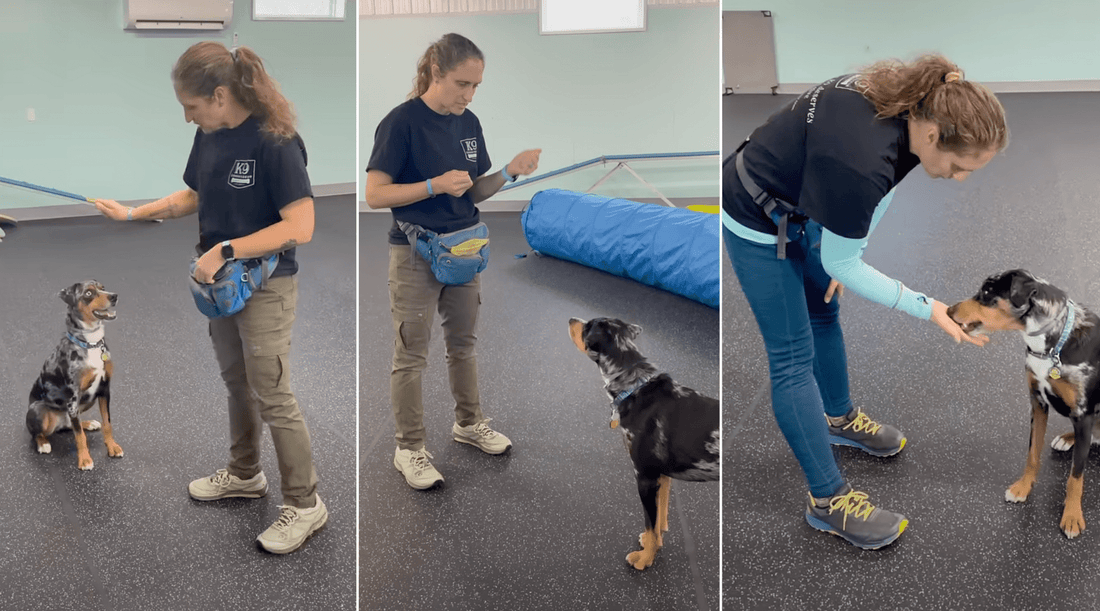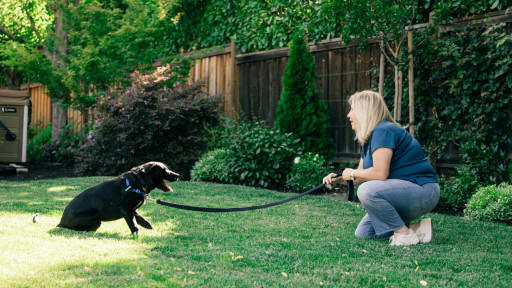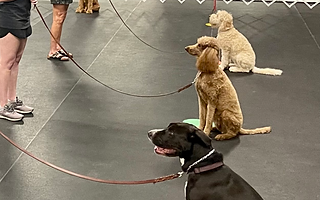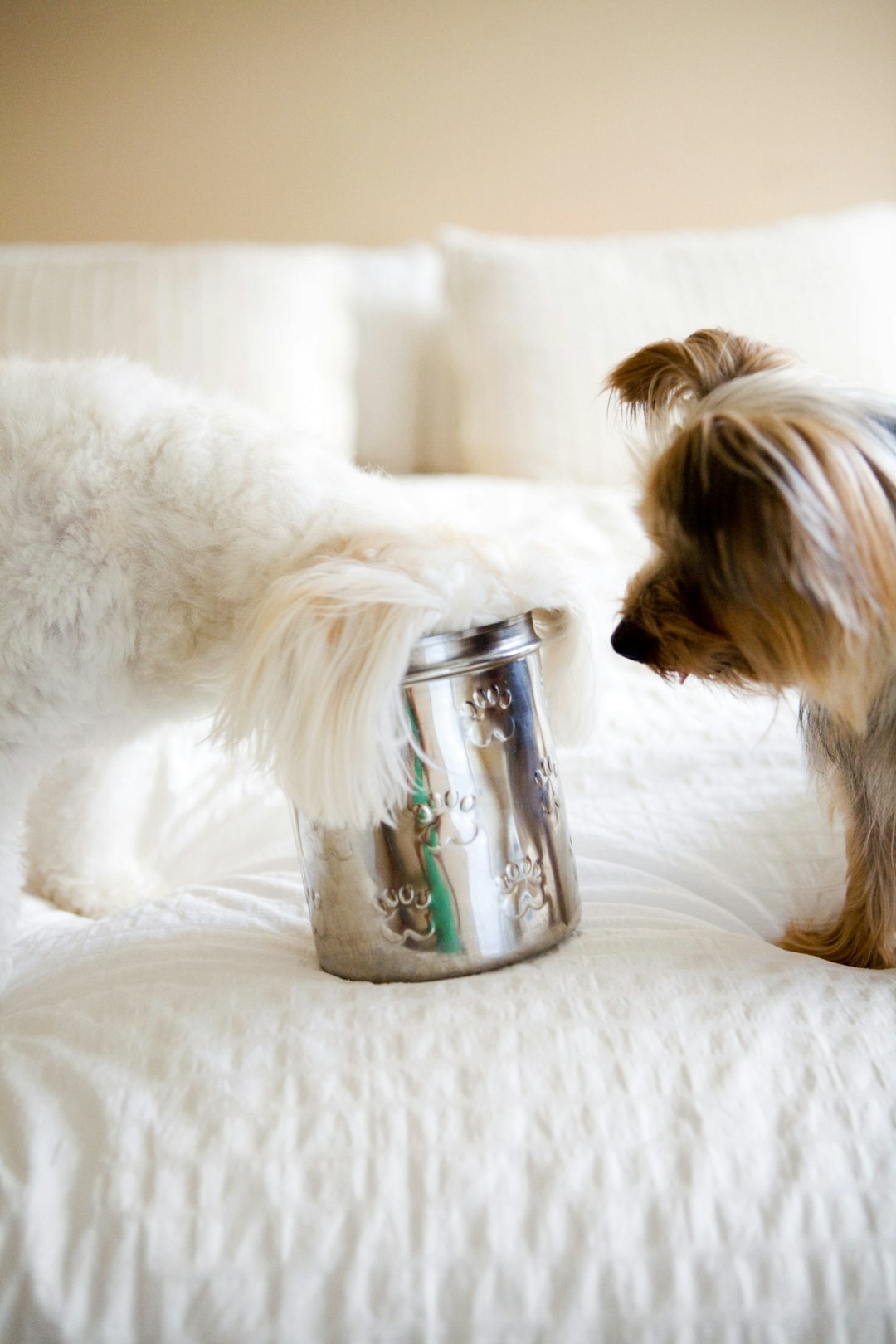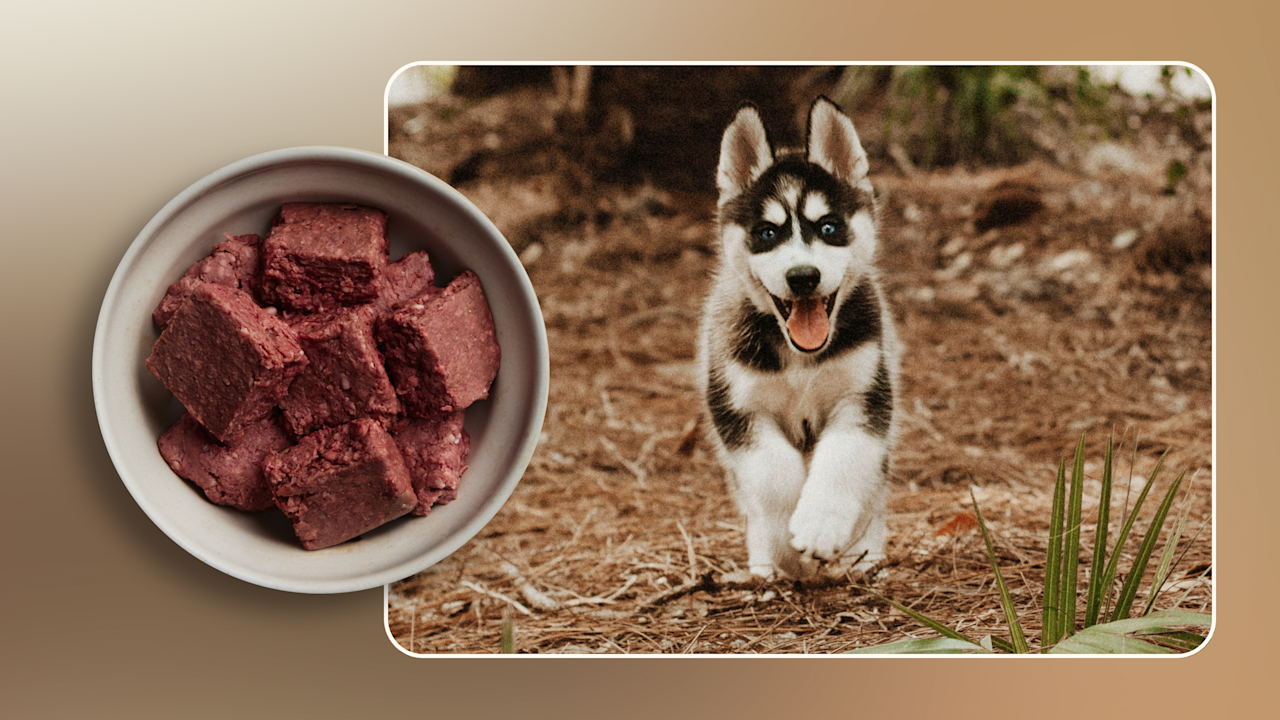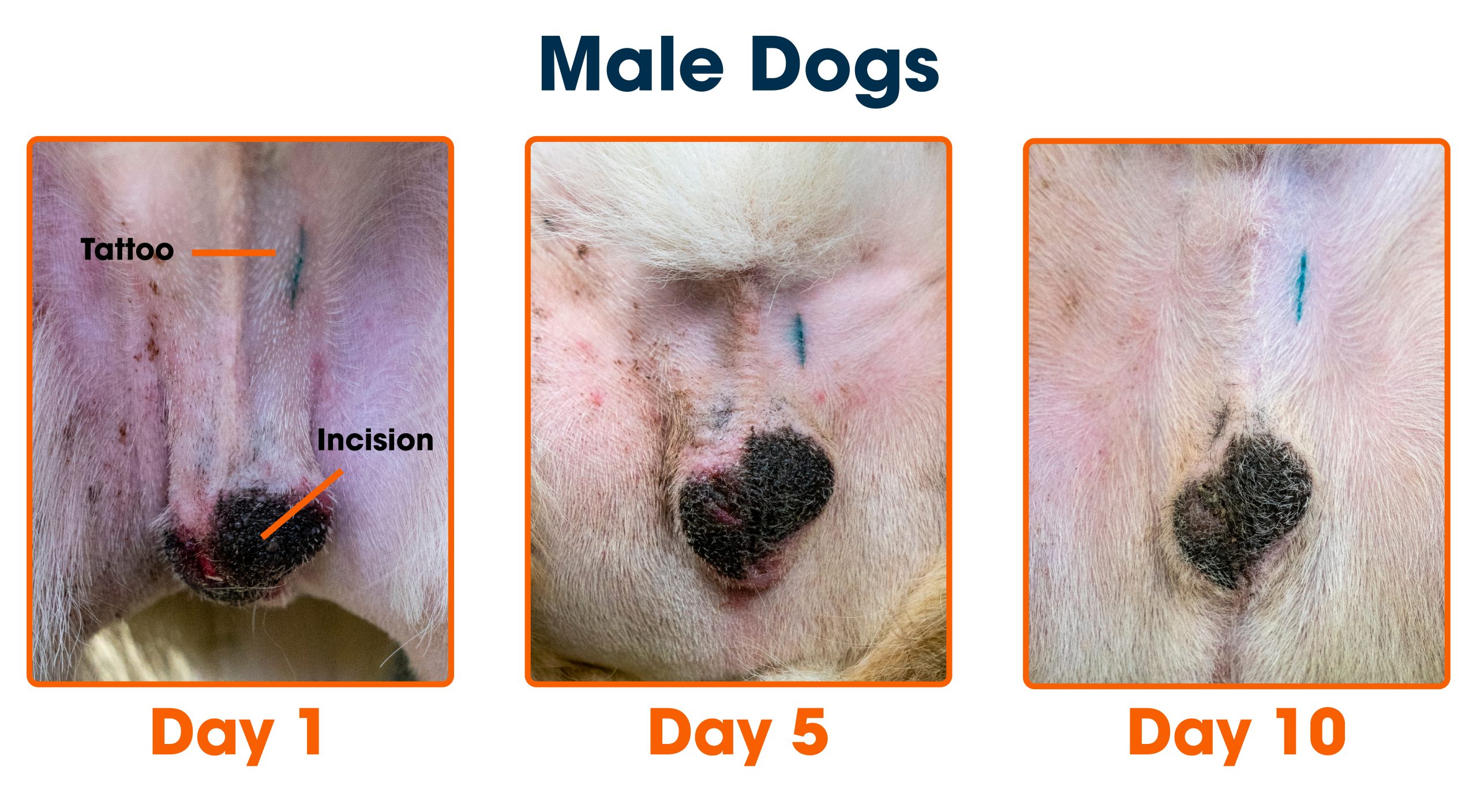If you’ve just had your dog neutered or are planning to, you’re probably wondering: how long will recovery take? Knowing what to expect can help you care for your furry friend better and avoid unnecessary worry.
Your dog’s healing process is important, and the right care during this time can make all the difference. You’ll discover the typical recovery timeline and simple tips to help your dog bounce back quickly and comfortably. Keep reading to ensure your pet stays happy and healthy after neutering.
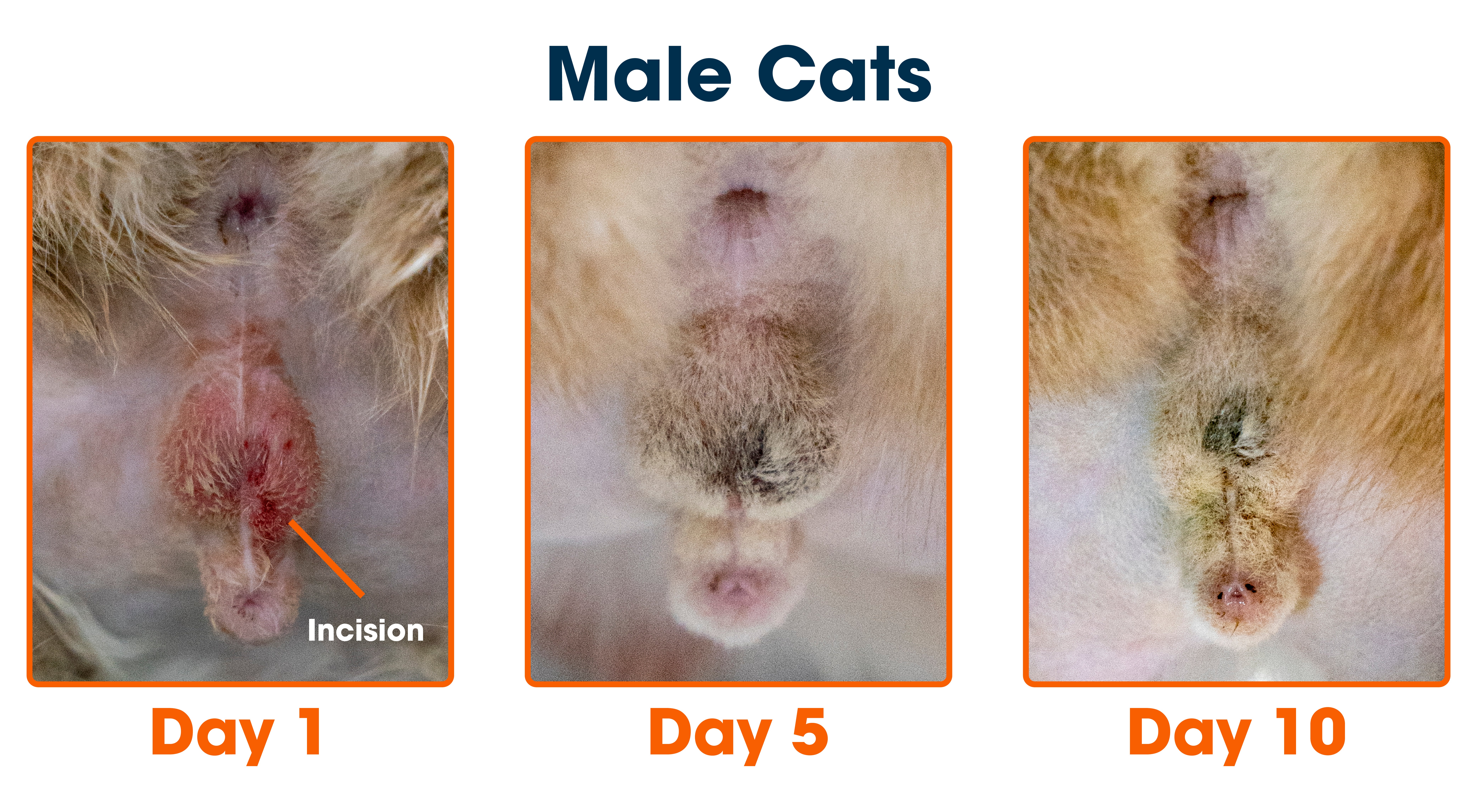
Credit: www.aspca.org
Typical Recovery Time
Knowing the typical recovery time after neutering helps pet owners prepare well. Recovery varies but follows a common pattern. This guide breaks down the healing stages to expect.
First 24 Hours
The first day is critical. Your dog may feel tired and sleepy. Mild swelling and redness near the surgery site are normal. Keep your dog calm and limit movement. Offer small amounts of water and food. Watch for unusual signs like heavy bleeding or vomiting.
Days 2 To 7
During this period, swelling should reduce. Your dog’s activity should stay low to avoid injury. Use an Elizabethan collar to stop licking or biting the stitches. Check the incision daily for infection signs. Most dogs start acting more like themselves by the end of this week.
Weeks 2 To 4
By week two, stitches usually dissolve or get removed. The incision should look healed with no redness or discharge. Your dog can slowly return to normal play and exercise. Avoid rough activities until fully healed. Full recovery is often complete by the fourth week.

Credit: www.fitwarm.com
Factors Affecting Recovery
Recovery after neutering varies for each dog. Several factors influence how fast your pet heals and feels better. Understanding these factors helps set clear expectations and ensures proper care.
Dog’s Age And Health
Young dogs usually heal faster than older ones. Their bodies recover quickly, and they show less discomfort. Older dogs or those with health problems take longer to heal. Conditions like diabetes or obesity can slow down recovery. A healthy dog has a better chance of a smooth healing process.
Surgical Technique
The method used during surgery affects recovery speed. Minimally invasive techniques cause less pain and swelling. Traditional open surgery may require a longer healing time. Skilled surgeons reduce tissue damage and speed up recovery. Less trauma means fewer complications and faster return to normal.
Post-operative Care
Proper care after surgery is vital. Keeping the dog calm and limiting movement helps wounds heal. Preventing licking or biting the surgery site avoids infections. Following vet instructions on medications and check-ups supports recovery. A clean, quiet environment boosts healing and comfort for your dog.
Signs Of Normal Healing
After neutering, your dog goes through a healing process that shows in many small ways. Recognizing normal healing signs helps you ensure your pet is recovering well. These signs cover behavior, the surgical wound, and energy levels. Understanding these areas keeps you calm and alert to your dog’s needs.
Behavioral Changes
Your dog may act a bit different after surgery. It is normal for him to be quieter or less playful for a few days. He might want to stay close to you or rest more. Some dogs seem a little sad or less interested in food. These changes usually last only a short time.
Wound Appearance
The surgery site should look clean and dry. Mild redness or swelling around the area is common. There might be a small scab or some clear fluid. Watch for any bad smell, pus, or heavy bleeding. These signs are not normal and need a vet’s attention.
Energy Levels
Your dog’s energy will be low at first. Rest is important to heal well. Gradually, you will see him become more active. By the end of the first week, he should start acting like himself again. Avoid rough play or long walks until fully recovered.
Potential Complications
Neutering a dog is generally safe, but some complications can occur during recovery. Knowing the signs helps catch problems early. Watch your dog closely after surgery to ensure healing goes smoothly.
Infection Symptoms
Infections can develop at the surgery site. Signs include:
- Redness around the incision
- Warmth or heat near the wound
- Unusual discharge or pus
- Foul smell from the area
- Fever or lethargy in your dog
Early treatment prevents serious issues.
Excessive Swelling Or Bleeding
Some swelling is normal, but too much needs attention. Look for:
- Large, hard swelling near the surgery site
- Bright red or continuous bleeding
- Blood soaking through the bandage
- Discomfort when touching the area
These signs may indicate internal problems or injury.
Pain Indicators
Dogs cannot tell us when they hurt. Notice these signs:
- Whining, whimpering, or unusual vocalizing
- Restlessness or inability to get comfortable
- Excessive licking or biting at the wound
- Reluctance to move or play
- Changes in appetite or behavior
Managing pain is vital for recovery and comfort.
Tips For Faster Recovery
Helping your dog recover quickly after neutering is important. Simple care steps make a big difference. Keep your dog comfortable and safe during this time. Follow these tips to support healing and reduce risks.
Activity Restrictions
Limit your dog’s physical activity for at least 7 to 10 days. Avoid running, jumping, and rough play. Use a leash during bathroom breaks to control movement. Provide a quiet, calm space for rest. Too much activity can open wounds and cause pain.
Proper Nutrition
Feed a balanced diet to support healing. Offer small, frequent meals if your dog’s appetite is low. Fresh water should always be available. Avoid giving treats that upset the stomach. Good nutrition helps tissue repair and boosts energy.
Medication And Follow-up
Give all prescribed medications exactly as the vet says. Pain relief and antibiotics prevent infection and discomfort. Watch for signs of swelling, redness, or discharge. Schedule follow-up visits to check healing progress. Contact your vet if you notice unusual behavior or symptoms.
When To Contact The Vet
Knowing when to contact the vet after neutering is vital for your dog’s health. Some symptoms need quick action to avoid serious problems. Watch your dog closely during recovery to spot any unusual signs early.
Emergency Signs
- Heavy bleeding from the surgery site
- Severe swelling or redness around the incision
- Difficulty breathing or choking sounds
- Sudden weakness or collapse
- Persistent vomiting or diarrhea
- High fever over 103°F (39.4°C)
Delayed Healing
Normal healing takes about 10 to 14 days. Watch for wounds that stay open or look infected.
- Incision not closing after two weeks
- Discharge that is yellow, green, or foul-smelling
- Excessive licking or biting at the site
- Hard lumps or bumps near the surgery area
Behavioral Concerns
Behavior changes can signal pain or complications. Notice if your dog acts very different.
- Unusual aggression or fearfulness
- Refusal to eat or drink for more than 24 hours
- Excessive whining or restlessness
- Reluctance to move or play
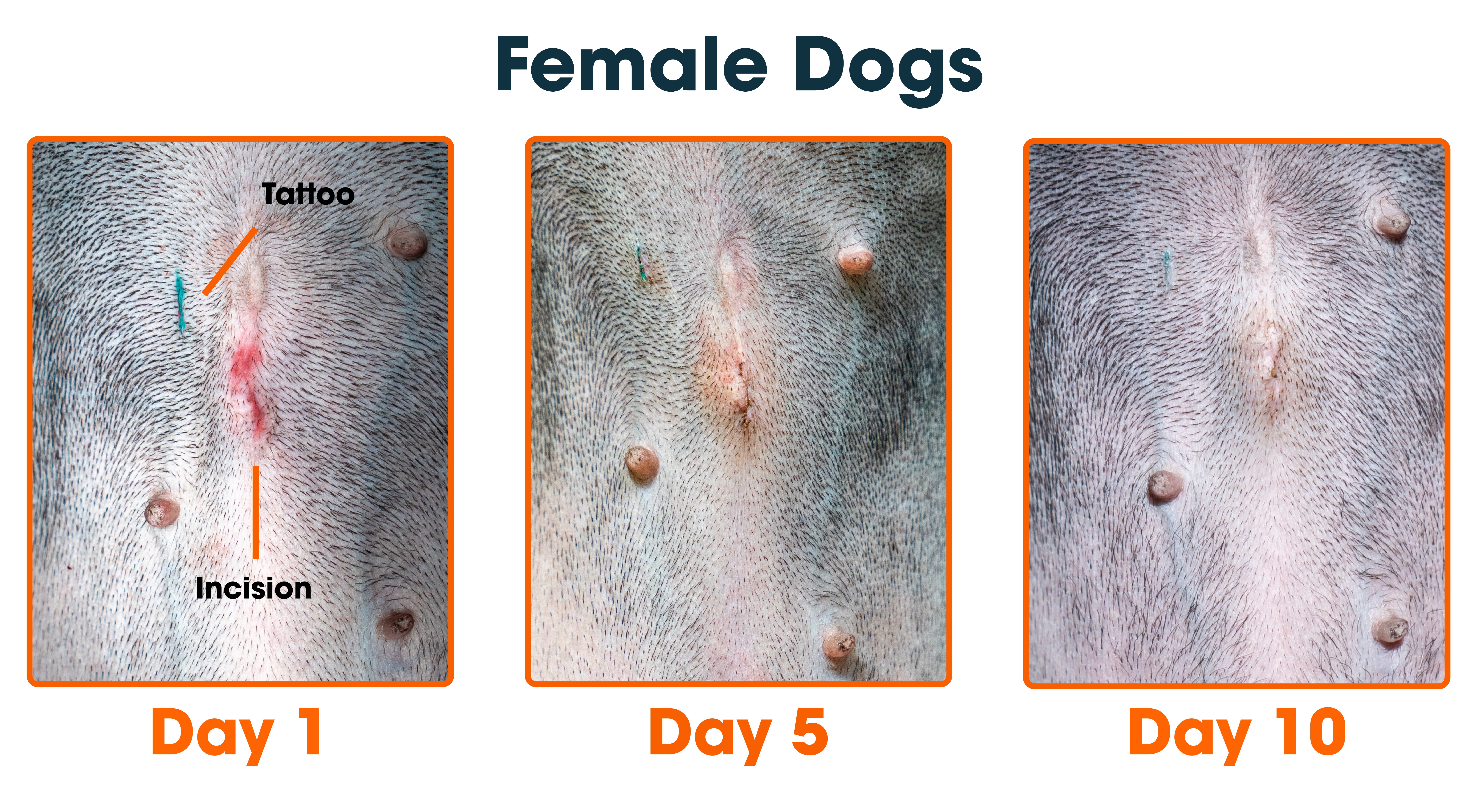
Credit: www.aspca.org
Frequently Asked Questions
How Long Does A Dog Take To Recover From Neutering?
Most dogs recover from neutering within 10 to 14 days. During this time, swelling and discomfort gradually decrease. Strict rest and limited activity help speed up healing. Always follow your vet’s care instructions for the best recovery outcome.
When Can My Dog Resume Normal Activities Post-neutering?
Dogs typically resume normal activities 10 to 14 days after neutering. Avoid running, jumping, and rough play during recovery. Gradually reintroduce exercise once the incision site heals fully. Always consult your vet before increasing activity levels.
What Signs Indicate Complications After Neutering Surgery?
Watch for excessive swelling, redness, or discharge at the incision site. Persistent lethargy, loss of appetite, or vomiting also signals problems. Contact your vet immediately if you notice these symptoms. Early intervention prevents serious complications.
How Can I Ease My Dog’s Pain After Neutering?
Your vet may prescribe pain medication to ease discomfort. Applying an Elizabethan collar prevents licking or biting the incision. Keep your dog calm and restrict activity to reduce pain. Follow all vet recommendations for pain management.
Conclusion
Recovery after neutering a dog usually takes about 10 to 14 days. Your dog needs rest and gentle care during this time. Watch for signs of pain or infection to catch problems early. Keep your dog from licking or biting the surgery site.
Follow your vet’s advice carefully for best results. Patience helps your dog heal well and stay healthy. Soon, your dog will be back to normal, happy and active again.

